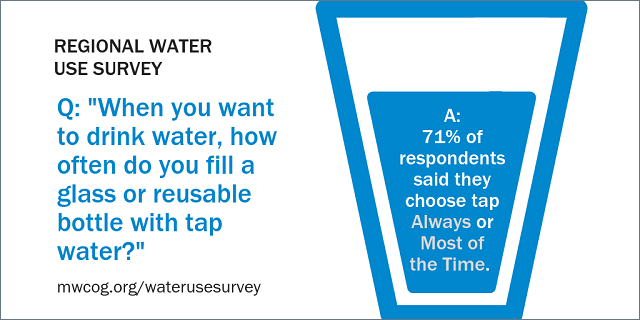A survey of area residents conducted in May by the Metropolitan Washington Council of Governments (COG) on behalf of the region's water and wastewater utilities revealed what they think and believe about their drinking water, utility rates, and how well they connect their own behaviors to drinking water and stream quality.
Key results from the survey revealed the majority of residents trust their water utilities, and 71 percent choose tap water over bottled for drinking.
While most residents reported they correctly dispose of unwanted medication, wipes, and fats, oils, grease in the trash, roughly 44 percent are pouring fats down their drains some of the time—a major source of expensive clogs for residents and serious problems, like ‘fatbergs,’ for utilities.
Less than 40 percent of survey respondents knew a gallon of tap water costs only a penny; how rates are calculated; and the reasons for raising rates. Utilities will use the survey results to plan focused, regional outreach to build greater water understanding and awareness in the region and to measure success in the future.

The survey identified areas for improvement—the need to communicate the Potomac River as the region’s primary drinking water source and how individual behaviors affect water quality. Thirty-five percent of survey respondents said they did not know the source of their drinking water and 29 percent did not realize that their practices in and around home can impact drinking water.
“This data provides an excellent baseline to understand regional knowledge about drinking water and water quality and will help area utilities focus messaging on the topics which are least understood,” said Alison Bibb-Carson, Virginia American Water External Affairs Manager and COG's Community Engagement Campaign Chair. “The Potomac is the source of drinking water for the majority of area residents, so we’re working as a region to determine the best strategies for communicating the value of water and our water infrastructure.”
The survey was conducted on behalf of the 16 water and wastewater utilities and jurisdictions who oversee the regionwide water communication and outreach as part of COG's Community Engagement Campaign.
MORE: Water and Wastewater Use Survey Responses